We bring you a compilation of the 18 best alternatives to Twitter, social networks to cover the various ways to use the microblogging social network in case you decide to abandon it. It is a colorful list to replace or complement this network looking for communities and open chats on any topic.
We have tried to have a varied list, with direct alternatives that are other social networks based on microblogging, and others that explore some of the features and concepts with which Twitter benefits the conversation around specific topics. In each one, we will put a link to its official website, where you can use them from the browser or download its applications.
And as the world of social networks is immense, in case there is any social network that you think should be on this list, we invite you to leave us your suggestions in the comments section. In this way, all users can benefit from the proposals and knowledge of our community.
Mastodon
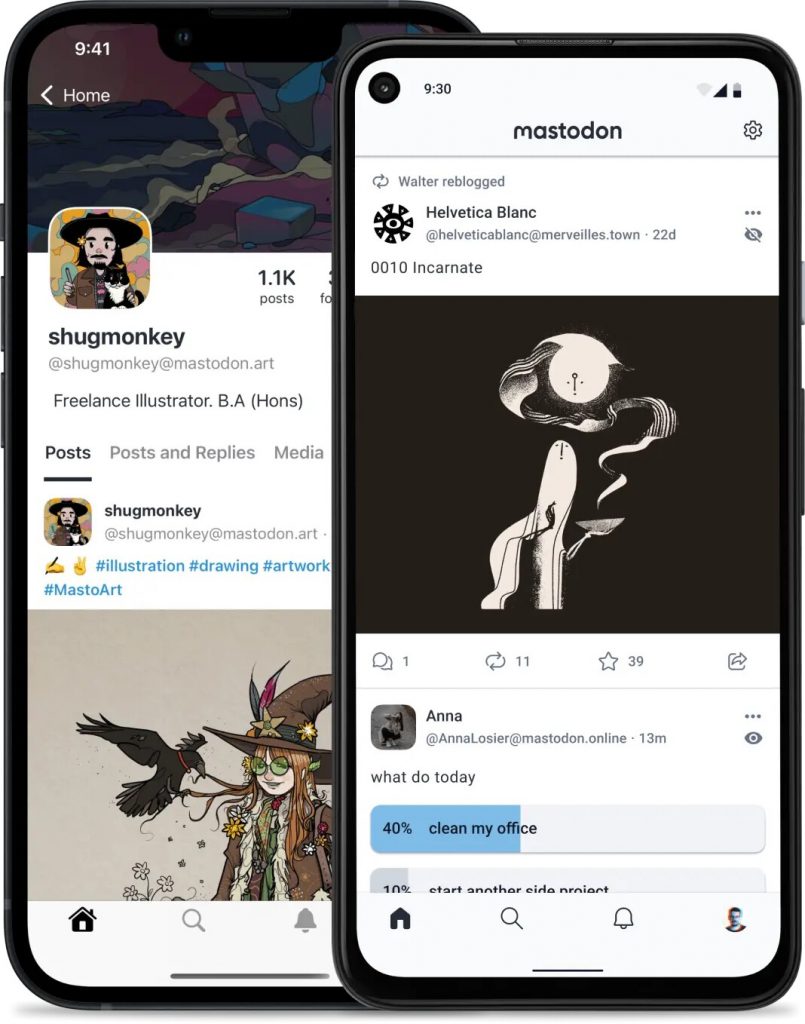
Mastodon is a microblogging social network with an aesthetic and functions similar to those of Twitter. It is possibly the best alternative you can find, which stands out for being based on free and open source. It is a decentralized network that, in addition to a “common area” like Twitter, also has different instances. Thus, instead of a single social network, it is like a group of networks based on the same technology to form a social network.
This allows you to create instances or networks with different themes or in different languages. As a user, you will be able to write for these networks or send messages to the common index shared by all of them. In principle, all these instances are free, although some require an invitation, and the internal operation and interaction options offered are similar to those of Twitter.
- Official Website: Joinmastodon.org
CounterSocial
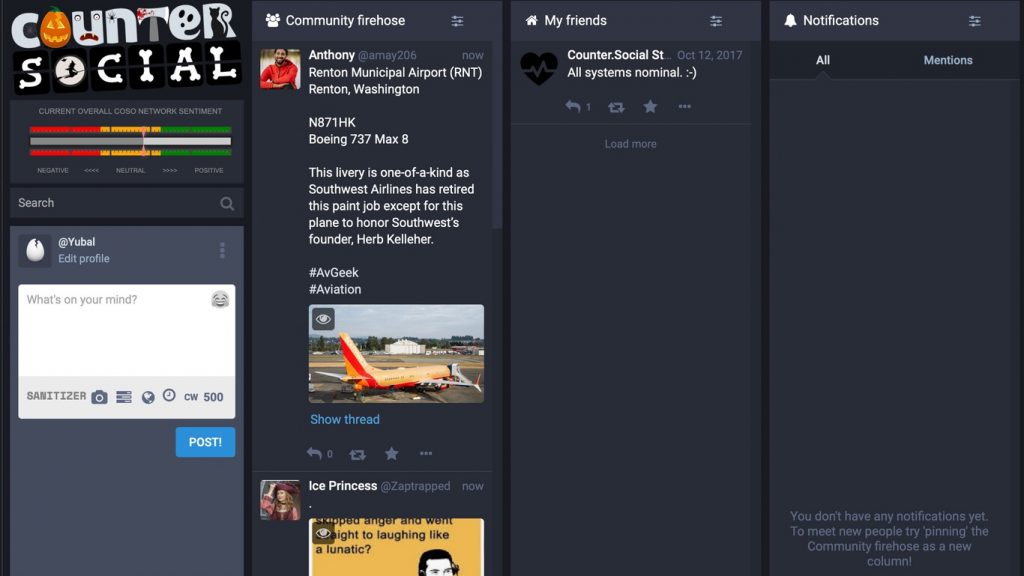
This is one of the most Twitter-like alternatives to Twitter. It is an alternative microblogging social network that claims to differentiate itself by being the first with a zero-tolerance policy against hostile nations, bot accounts, and trolls, who are using social networks and our freedoms to influence other people.
This seems something difficult to achieve, although this network created in 2017 has already exceeded 60 million users. It is free and ad-free, although to monetize itself it offers PRO accounts with extra features and is open to patronage on its Patreon account. Otherwise, it is like Twitter but with messages of up to 500 characters, with retweets, replies, stars to mark favorites, hashtags, etcetera.
- Official Website: Counter.social
Minds
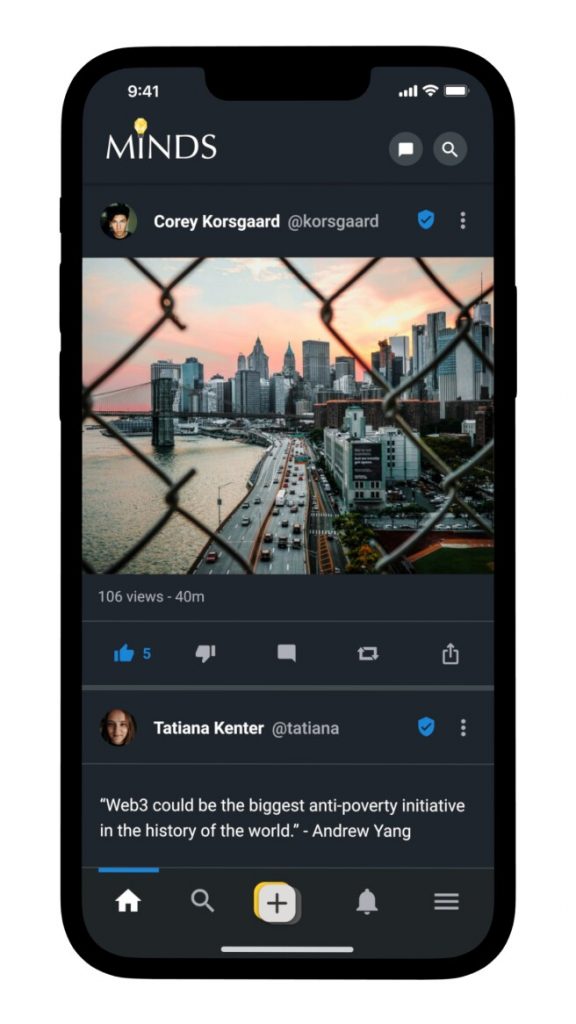
Minds is a proposal that navigates in a formula between Twitter and Instagram, where you can share multimedia content as in one but use the interactions of others. The social network promotes above all freedom of expression and tries to focus on influencers and content creators.
For that, the application offers native content analysis tools to be able to review how your posts impact and includes other options such as encrypted chats, groups, and blogs. It is a good idea, but only the skeleton, because at the moment it does not have too many users, about six million.
- Official Website: Minds.com
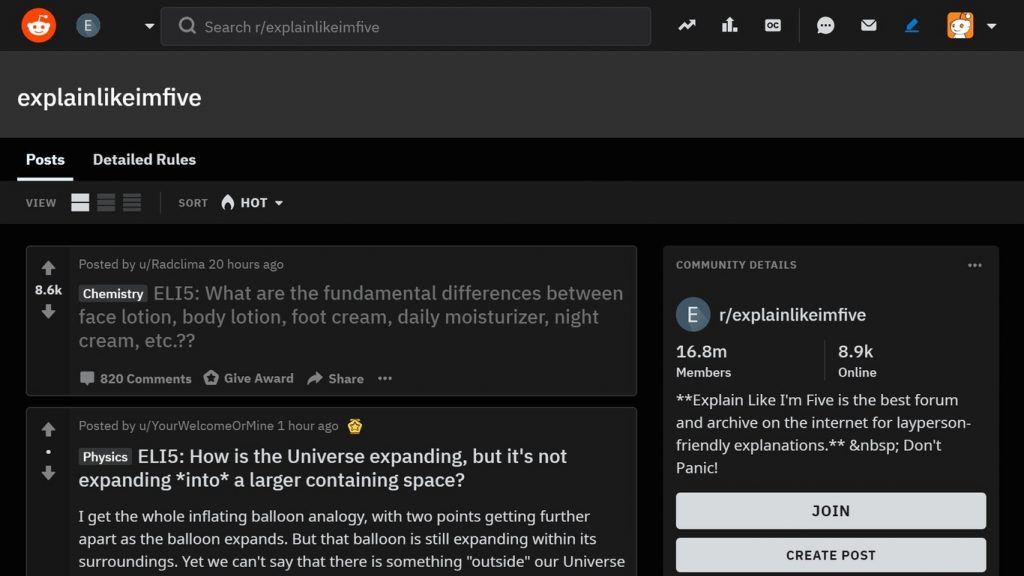
Reddit is not an alternative to Twitter in terms of operation, and it is not a unified social network. However, if what you like most about Twitter is keeping informed about specific topics, this is possibly the best alternative, and even better in these cases.
It is a platform for creating thematic communities, and you can find communities for practically anything and on any topic. The operation is similar to that of a forum with social functions. However, it does not have any general channel or main room as it can be in the case of the rest of the members of the list.
- Official Website: Reddit.com
Discord
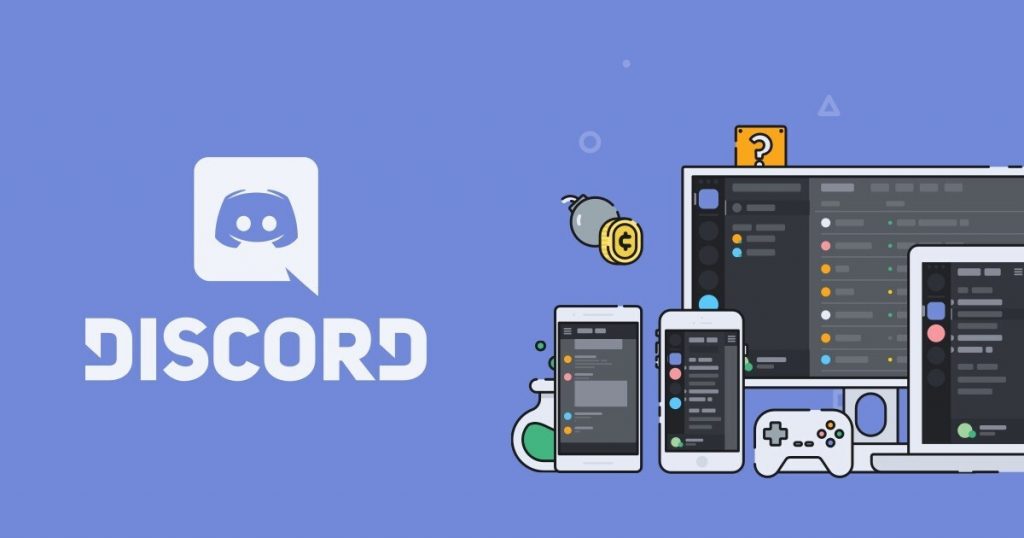
And if we are going to include Reddit, we also have to include Discord in this list. Like Reddit, it is not a community but a platform to create different communities through the different Discord servers that there are and that you can create. Each of them with a different theme and rules.
If what you like most about Twitter are the conversations around specific topics, here you can create a thematic server with different chat rooms to deal with those same topics. You can find really big servers, and in all of them, there is also a voice chat room.
- Official Website: Discord.com
Diaspora
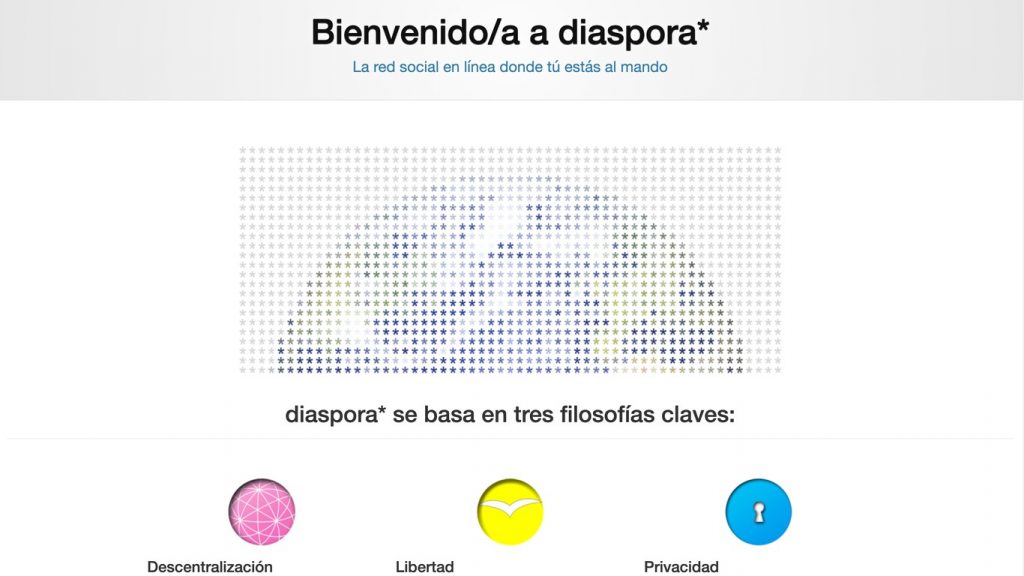
Diaspora is a kind of antonym to conventional social networks because it is based on decentralization and privacy. It has been trying to find its place for years and has never really taken off, but it is a place to go for lovers of open source and network freedom.
It is organized into interconnected servers called pods. You’ll start by signing up for one of them or creating your pod, and then start posting content. When you do, you will be able to mention other users and use hashtags to browse similar content, and you can also re-share content such as retweets and give a heart to those you like.
- Official Website: Diasporafoundation.org
WT.Social
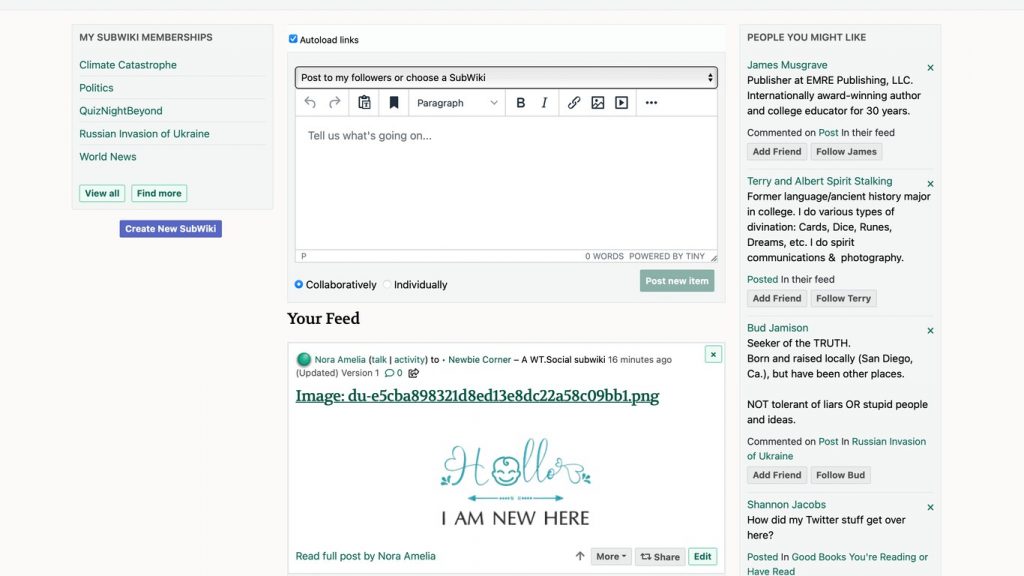
WT.Social, or Wiki Tribute Social, is a social network created by the founders of Wikipedia. Its content is organized in sub-wikis, which are a kind of mix between subreddits and Wiki projects, where you can chat about all kinds of topics ranging from movies and music to current affairs.
It has a quirky and collaborative moderation system, as you can edit many other people’s posts to help fight spam and misinformation. It is more like Reddit than Twitter and can be a bit complicated to understand at first, but it is an alternative if you like the way Wikipedia works.
- Official Website: Wt.social
Ello
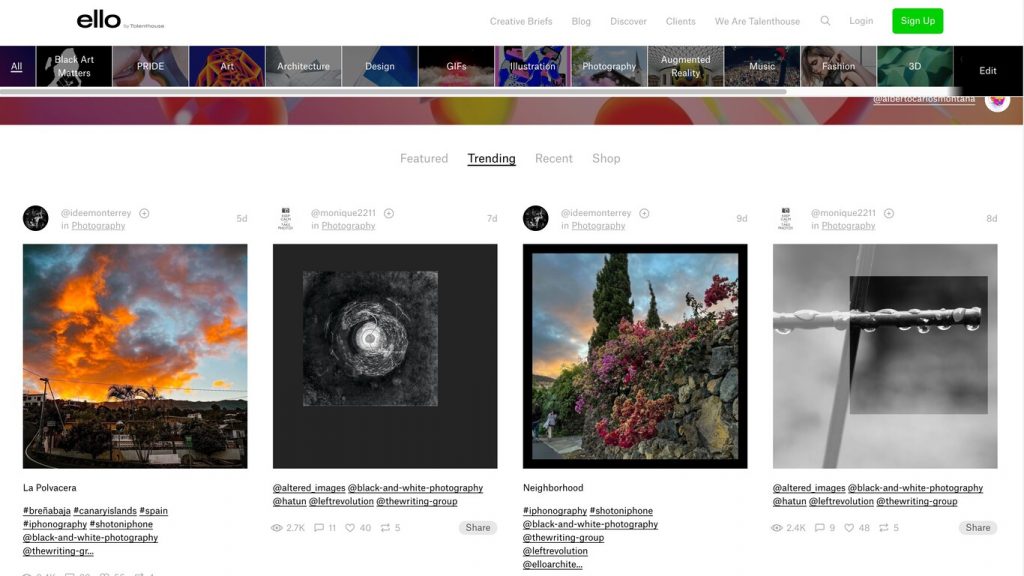
Looking for alternatives to Twitter is nothing new. We can almost say it’s cyclical: people get angry about something on Twitter, and alternatives are born. In 2014 Ello was born, a minimalist social network, and over time it has evolved to become a global community of artists, created by artists for artists.
So, if you like topics such as architecture, photography, journalism, design, or music, in this social network without advertising you can find people with the same interests. However, it is a social network that has never really taken off in terms of users, although you can enjoy the advantages of interactions in smaller communities.
- Official Website: Ello.co
Tumblr
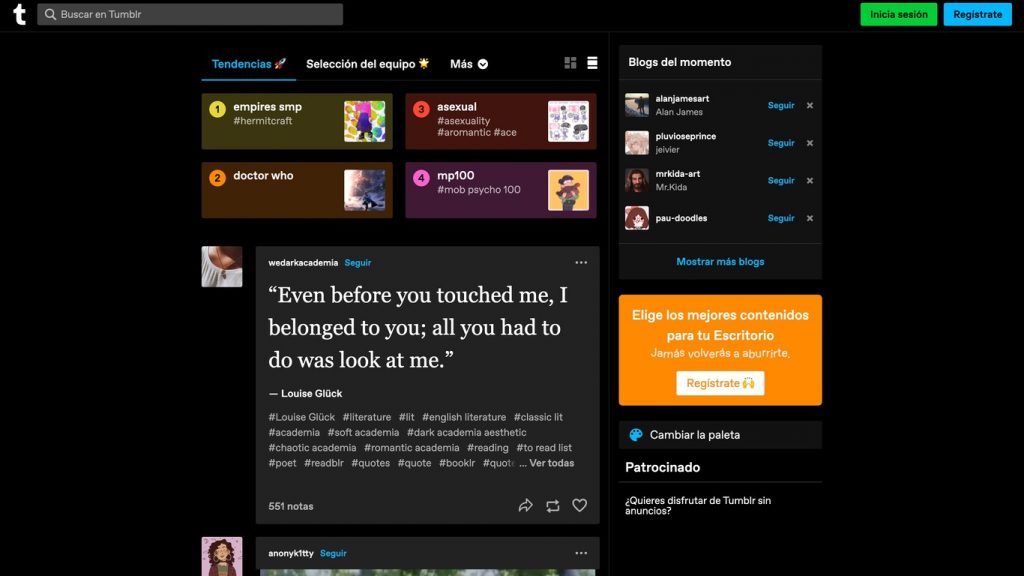
A veteran social network that offers a kind of mix between a blogging platform and a social network, and no matter how many times it seems to have fallen into oblivion, it always remains there with a strong user base. To this day it is still a strong network among creators and people who want to share memes.
The idea is simple: you have your profile and you post whatever you want, from texts to images. In doing so, you can add tags, and with these tags, you can browse similar content. You can follow tags and users to always see fresh content. Interactions are similar to Twitter, you can reply and leave comments, Like a post, or share it on your profile.
- Official Website: Tumblr.com
Micro.blog
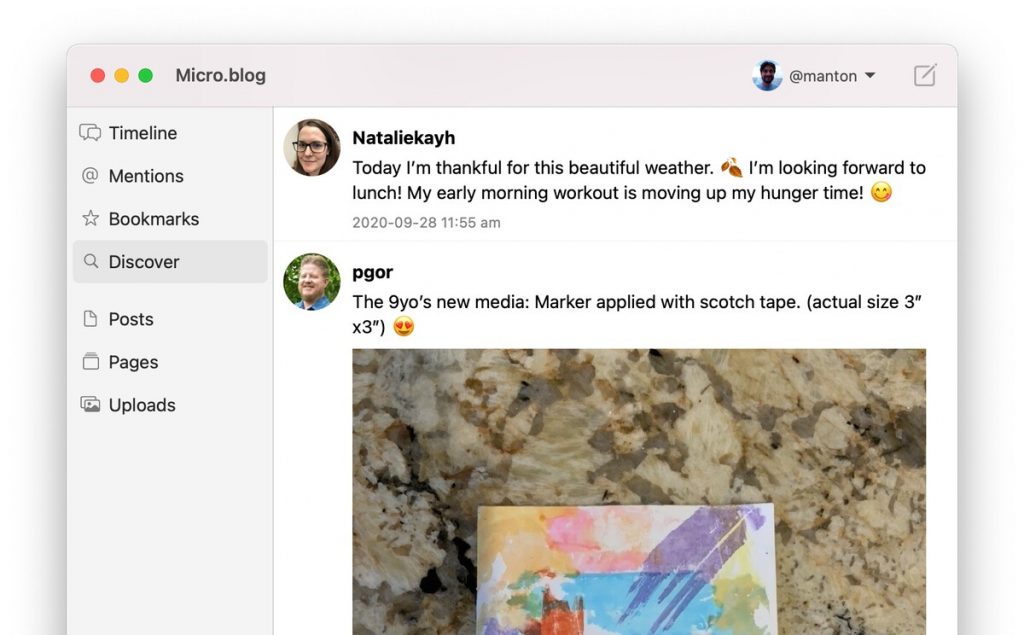
Micro.blog is a premium micro-blogging platform, which is a social networking based on small posts like Twitter. However, it does not seek to be a replacement for any social network, but one in which to centralize your social activity and expand how many people you reach.
It is a network that supports cross-posting with Twitter, Facebook, Tumblr, Mastodon, and more, so you can use it to post to them. The bad news is that this platform is paid, with some features you’re going to have to pay $5 a month for. In return, it’s an ad-free network with curated content but shown to you without algorithms.
- Official Website: Micro.blog
Dots
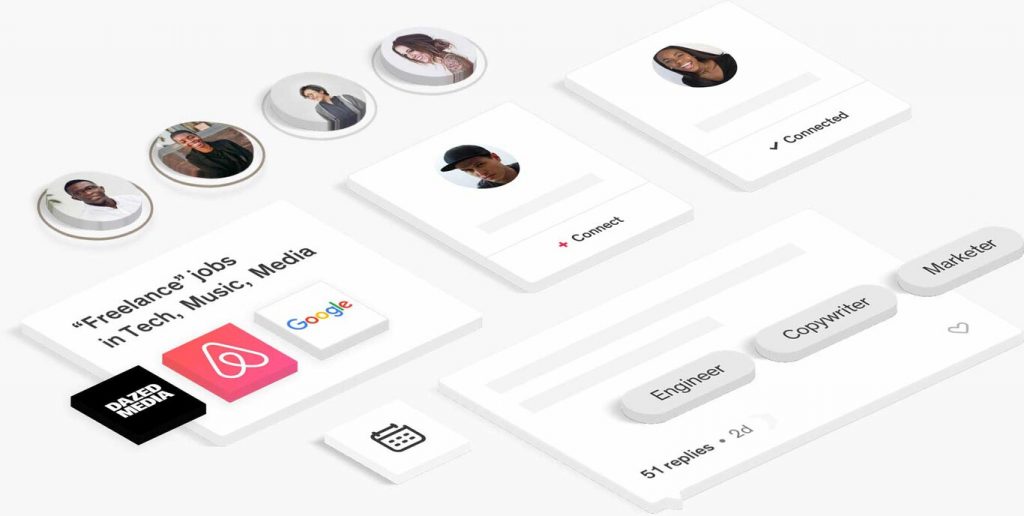
One of the many positive aspects of Twitter is that it is a social network full of professionals and that sometimes it also allows you to find work or collaborations. And that is the aspect that Dots wants to try to explore, which seeks to position itself as a professional social network for artists and creatives.
So, what you have is something similar to LinkedIn, where you can expose your skills and qualities to find work. It also has its part of a social network, with which you can expose your thoughts and opinions without censorship or bans.
- Official Website: The-dots.com
Plurk
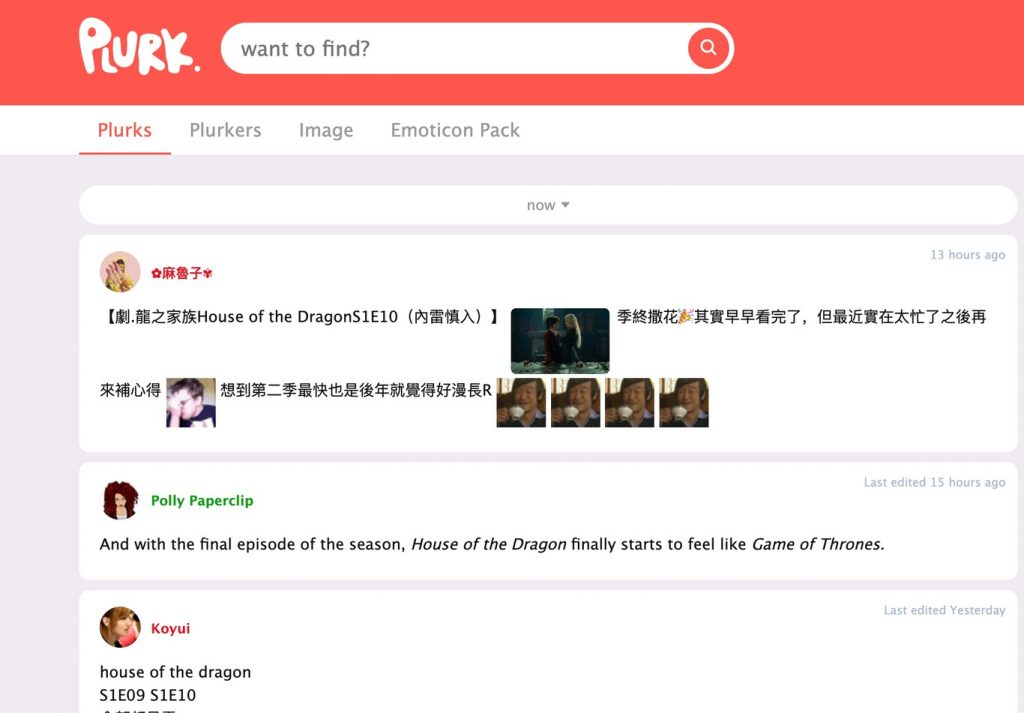
Plurk is kind of a mix between Twitter, Facebook, and Reddit, with elements of all of them. You have a wall where you can write whatever you want as in Facebook and you can keep it private, and you can also create Twitter-style microblogs with a maximum of 210 characters.
In addition to this, Plurk also has a karma system with which to gain notoriety, and all this in a safe social network free of toxic users. Plurk also has a search engine where you can find content on different topics ranging from memes and anime to other specific topics. Most of the content is Asian, but its base is quite interesting.
- Official Website: Plurk.com
Misskey
This is a decentralized alternative to Twitter that is part of the Fediverse, which is a network of interconnected federal servers used for social networking and microblogging. Therefore, it shares the universe with other alternatives such as Mastodon and Diaspora, and like them, it is also open source.
It is a tiny social network, with just over 36,000 registered users in 251 instances, which are the ones that cover the different internal conversation topics. It’s sort of like a mix between Twitter and Reddit with a fairly modern interface. If you don’t mind that it is based on small communities, it can be an interesting place to go.
- Official Website: Misskey.page
Pleroma
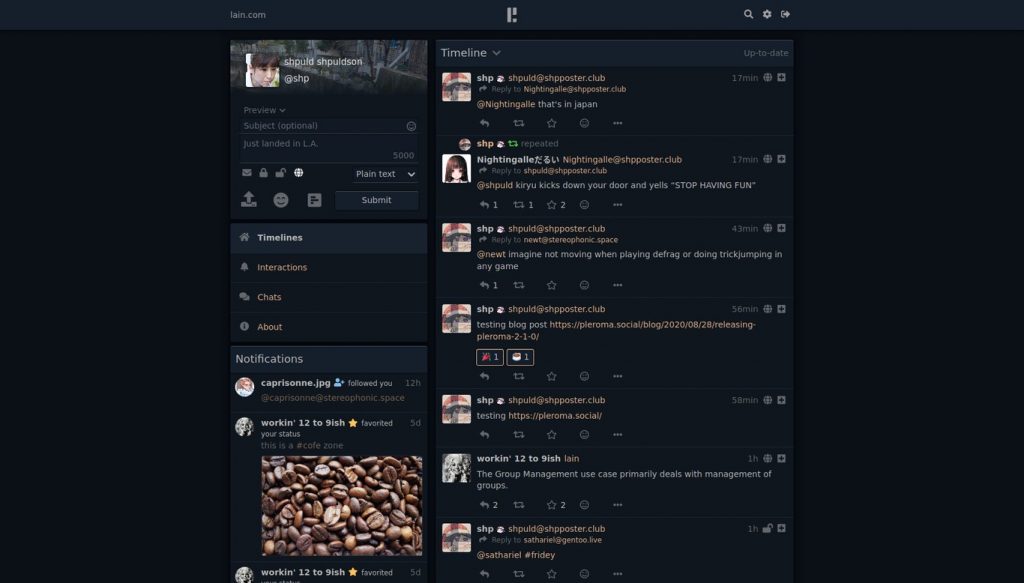
Another decentralized alternative to Twitter operates within the Fediverse and is similar to the previous one and many others like it. It is a social network that is composed of instances, and when you register in one of them you will be able to see the content that the rest of the inhabitants publish in it or that of all the central servers.
This allows you to create an ecosystem of thematic instances with differences such as the topics to be discussed or the main language. The mechanics itself is like Twitter, but with publications of up to 5,000 characters. You post whatever you want and interact with others’ posts by replying to them or sharing them.
- Web: Pleroma.social
Hive Social
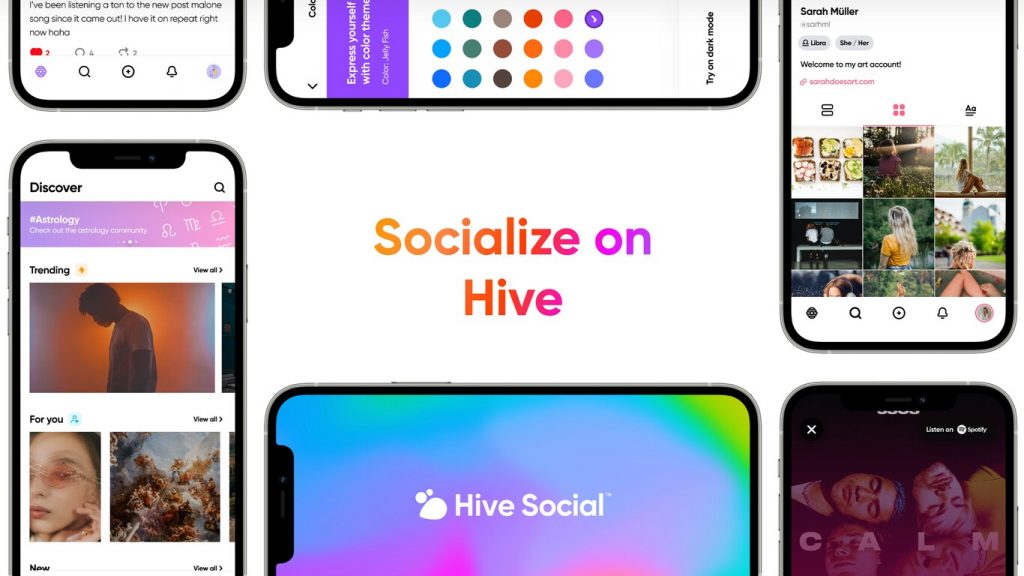
Hive Social is a two-for-one social network. On the one hand, it is an excellent platform for posting photos like Instagram, but you can also post texts, and videos, use GIFs, or even create polls or make reposts to share the content of others. All this with a feed with chronological order and without algorithms.
It has a curious element such as adding a song to your profile as you did in MySpace, and when someone visits it, it starts playing automatically. It also has a very nice design that will enter you through the eyes. The downside? For now, it is only on iOS, although it will soon arrive in Beta for Android.
- Official Website: Hivesocial.app
Aether

This is an alternative to Twitter that is decentralized and based on P2P technology, where you can create and join thematic communities. It’s like a mix of Twitter and Reddit or Discord. What makes it unique is its method of making only relevant content remain.
All posts disappear after six months unless someone saves them, so only content that is truly useful to others lives on. In addition, communities are independent and have moderation policies. Of course, moderation is transparent because if someone deletes content you can see who deleted it and why, and there is an appeal process to recover the content.
- Official Website: Getaether.net
Telegram
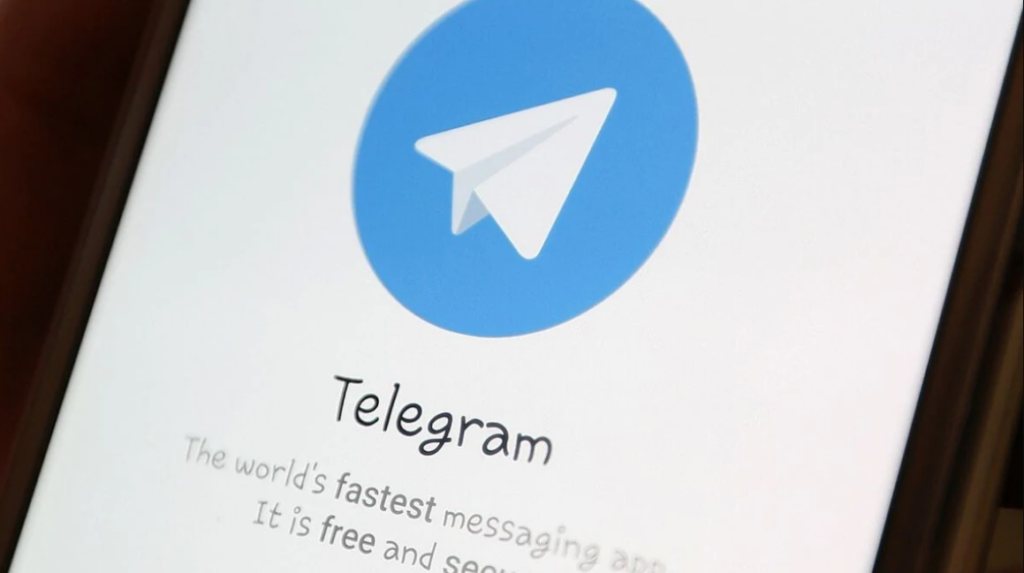
When you think of messaging apps, you can hardly consider them an alternative to a social network like Twitter. But Telegram has a wide ecosystem of thematic channels that have little to envy other networks mentioned such as Discord or Reddit, although they are usually much smaller.
However, it is a good alternative to enter conversation channels around specific topics or hobbies and interact there with the rest of the people. You have the basis for everything, such as responses, reactions, mentions, the ability to share content or mute the channels with more movement so that you are not notified as much, and so on.
- Official Website: Telegram.org

And we end with Facebook, which has little to do with the social network it once was, but is still the most used in the world. So much so that we have been on the verge of not including it because of the obviousness of using it. As in Twitter, you can write whatever you want and others will read it, and you can add tags to your messages so that people browsing these specific topics can read them.
The great advantage of Facebook is that you can find most of the people you know since almost everyone has an account. You also have official accounts of almost all the media and celebrities, so it is a good alternative to keep up to date with the topics and people that interest you.
- Official Website: Facebook.com
This post may contain affiliate links, which means that I may receive a commission if you make a purchase using these links. As an Amazon Associate, I earn from qualifying purchases.

